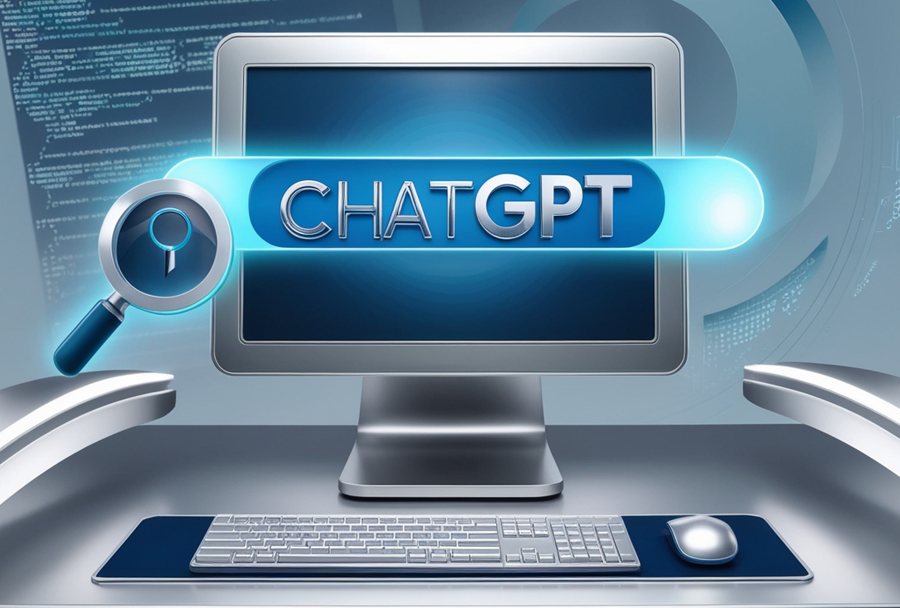Hey there! Have you heard the latest buzz in the tech world? OpenAI ChatGPT Search Engine is stepping up its game with a new ChatGPT-powered search engine, aiming to go head-to-head with Google. Yep, you read that right! This could be a game-changer, and it’s got everyone talking. Let’s dive into what this means and how it could shake things up in the search engine arena.
The Big News
So, OpenAI is testing a new ChatGPT search engine powered by their AI, ChatGPT Search Engine. This isn’t just a small upgrade or a fancy feature; it’s a whole new approach to how we search for information online. Imagine asking a question and getting a direct, conversational answer instead of sifting through a bunch of links. Sounds cool, right?
The Future of OpenAI ChatGPT Search Engine
This move by OpenAI is just the beginning. As AI technology continues to evolve, we can expect even more innovative solutions that make our lives easier. The search engine landscape is ripe for disruption, and OpenAI’s ChatGPT could be the catalyst that brings about significant change.
Why This Matters
For years, Google has been the go-to for almost all our search needs. It’s fast, it’s reliable, and it gives us tons of information. But here’s the thing: it can also be overwhelming. You type in a question, and boom—pages upon pages of links, ads, and snippets. Sometimes, all you want is a straight answer without the noise. This is where OpenAI’s ChatGPT-powered search engine could make a big difference.
How It Works
The idea is pretty straightforward. You ask a question, and ChatGPT Search Engine, which is a highly advanced AI, provides you with a direct answer. No more scrolling through endless search results. This AI is designed to understand the context and nuance of your question, giving you a more precise and conversational response.
For example, if you ask, “What’s the best way to learn guitar?” instead of getting a list of websites, you might get a detailed answer explaining different methods, resources, and tips, all in a conversational tone. It’s like having a chat with a knowledgeable friend rather than searching through a massive library.
The Technology Behind It
OpenAI’s ChatGPT is built on cutting-edge AI technology. It’s been trained on vast amounts of data and fine-tuned to understand and generate human-like responses. This isn’t just about regurgitating information; it’s about understanding context, nuance, and providing meaningful answers.
The AI uses something called natural language processing (NLP) to comprehend and respond to queries. This allows it to grasp the intricacies of human language, making interactions feel more natural and less robotic.
Competing with Google
Taking on a giant like Google is no small feat. Google’s been the king of search engines for over two decades, constantly innovating and improving its algorithms. But OpenAI’s approach is different enough that it could carve out its own niche.
One of the key advantages OpenAI has is its focus on conversation. Google’s strength lies in its ability to quickly index and retrieve vast amounts of information. But it often lacks the human touch that makes interactions feel personal and engaging. OpenAI’s ChatGPT aims to fill that gap by offering more personalized and conversational responses.
Potential Advantages
User-Friendly
The conversational format is more user-friendly, especially for those who find traditional search engines overwhelming.
Precision
By understanding the context of a question, ChatGPT Search Engine can provide more precise answers.
Efficiency
It saves time by delivering direct answers without the need to sift through multiple sources.
Learning
The AI learns from interactions, meaning it can improve over time and provide even better responses.
Potential Challenges
Of course, there are challenges too. For one, ensuring the accuracy of the information provided is crucial. Unlike traditional search engines that give you multiple sources to verify, a conversational AI needs to be spot-on with its answers.
Another challenge is bias. AI can sometimes reflect the biases present in the data it was trained on. OpenAI will need to work hard to ensure their AI provides fair and unbiased responses.
What It Means for Us
For us users, this could mean a significant shift in how we interact with the internet. Instead of spending hours digging through search results, we could get the information we need in a matter of seconds, explained in a way that’s easy to understand.
It also means that we might start seeing more AI-powered tools integrated into our daily lives. From customer service to personal assistants, the potential applications are vast.
SEO Implications
From an SEO (Search Engine Optimization) perspective, this new development could also change how content creators approach their work. Instead of just optimizing for keywords and search algorithms, there might be a shift towards creating content that’s more conversational and informative. After all, if an AI is delivering answers based on the quality and relevance of content, then the focus will need to be on providing real value to users.
How to Stay Ahead
If you’re a content creator or business owner, now’s the time to start thinking about how AI could impact your strategy. Consider how you can make your content more engaging and conversational. Think about the questions your audience might have and how you can answer them in a way that’s both informative and easy to understand.
Conclusion
OpenAI’s new ChatGPT-powered search engine is an exciting development that could change the way we interact with information online. By offering direct, conversational answers, it has the potential to make searching more intuitive and less overwhelming. While there are challenges to overcome, the benefits could be substantial, providing users with a more personalized and efficient way to find the information they need.
As we move forward, it’s clear that AI will play an increasingly important role in our digital lives. Whether it’s through search engines, personal assistants, or other applications, the goal is to make technology work better for us. And with innovations like OpenAI’s ChatGPT Search Engine, the future looks bright.
So, keep an eye on this space! The world of search engines might be on the brink of a major transformation, and you wouldn’t want to miss it.






Leave a Reply